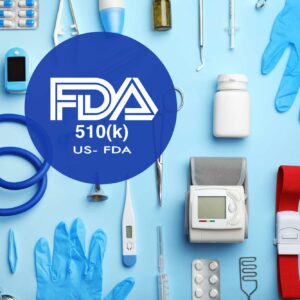While it may still seem off in the distance, cosmetic companies are required to comply with the new registration and listing requirements of the Modernization of Cosmetic Regulations Act (MoCRA) by July 1, 2024, and several other compliance requirements which are currently in effect. This includes labeling and substantiation compliance and recordkeeping, having an adverse event procedure and following it, having and following a recall procedure, and working towards cGMP compliance.
We’ll recap here:
- What cosmetic companies should be doing NOW under MoCRA
- How to prep and prime for the new regulations
- When to comply and meet important deadlines and
- Why MoCRA compliance is critical
For those who (air)brushed away FDA cosmetic news happenings over the last several months, MoCRA was passed December 29, 2022, aimed at strengthening FDA’s regulation of cosmetic product safety in over 80 years. As most American consumers use cosmetic products daily, with an average of 6 to 12 products used day-to-day (makeup, nail polishes, shaving creams and other groom products, perfumes, haircare products, skincare products, moisturizers, etc.), FDA’s aim is to help ensure the overall safety of cosmetic products, and significantly expand the Agency’s ability to trace and track non-compliant products and facilities.
While the regulations have had some deadlines and pushbacks over the last several months, with several commitments still outstanding, there are a number of MoCRA provisions now in effect with which we recommend Companies understand and begin working towards compliance. Companies that are in the business of manufacturing and producing cosmetic and personal care products should first examine whether MoCRA applies to their operations and products, whether there are any legally defensible exemptions or modifications from compliance, and the specific requirements and deadlines that apply. We recommend businesses develop a regulatory rationale to file for lasting radiance. We like to call this a MoCRA regulatory “rouge” roadmap assessment.
Cosmetic companies should assess several MoCRA requirements, further illuminated here:
A. Cosmetic Facility Registration Requirements
On December 18, 2024, FDA announced that the portal (Cosmetics Direct) for electronic submission of facility registrations and product listings under MoCRA is available and can be accessed by industry.
As a reminder, cosmetic product manufacturers and processors must register their facilities with the FDA, update content within 60 days of any changes, and renew their registration every 2 years, and now, by July 1, 2024. This also requires a requires a responsible person (defined as the manufacturer, packer or distributor of a cosmetic product whose name appears on the label of the cosmetic product) to list each marketed cosmetic product with the FDA, including product ingredients, and to provide FDA any updates annually. Note that small businesses (average sales of 1 million per year for the preceding 3 years, except those making eye products and a few other exceptions) are exempt. To complete facility registration and product listing, companies should have available an FDA Establishment Identification (FEI) Number, a list of all brands and products in addition to product category, a list of ingredients in the cosmetic product including any fragrances, flavors or colors, with each ingredient identified by the regulation name or by the common or usual name, and the type of submission (initial, amended, biannual renewal, or abbreviated renewal).
It is important for cosmetic companies to assess who is required to register, including responsibilities between a contract manufacturer and brand owner, and also to confirm supply chain activities with parties involved in storage, retail, labeling, packaging, distribution and holding.
For small businesses, please also note that if your manufacturing facility makes a product that meets any one of the four exceptions to the exemption (e.g. products that regularly come into contact with the mucus membrane of the eye, products that are injected, products that are intended for internal use, and products that are intended to alter the appearance for more than 24 hours), even if you are technically considered a small business, FDA’s current interpretation is that this negates the exemption for all products.
Again, we recommend reviewing the requirements, determining whether your company and operation is required to comply, deadlines for compliance, exemptions or extensions that may apply, and having a regulatory memo to file. We also recommend that legal counsel review facility registrations and product listings to ensure MoCRA compliance.
Adverse Event Reporting and Recordkeeping
Under the new requirements, all companies are required to report serious adverse events associated with use of cosmetic products in the U.S. within 15 business days after receiving the report. The adverse event report must include a copy of the cosmetic label, and the Responsible Person is required to report material updates that it learns of related to the adverse event for one year following submission of the report. Additionally, FDA also has authority to request information relating to flavor, or fragrance ingredients, if it has reasonable grounds to believe that such ingredients caused or contributed to the adverse event. The Responsible Person must submit the requested information within 30 days of the request.
FDA has delayed the opening of its electronic portal for mandatory submission of serious adverse event reports from cosmetic products, but requires in the interim, submission via FDA’s MedWatch Adverse Event Reporting Form (Form 3500A). The Agency announced this on December 14, 2023; however, the reporting requirement became effective December 29, 2023.
We recommend organizing data now, including developing an appropriate procedure for intaking, reviewing and processing an adverse event, and following the procedure. In terms of record-keeping, businesses are required to maintain records of any health-related adverse events associated with the use of its cosmetic product for 6 years and report to FDA any serious adverse events no later than 15 days after receiving the report. We strongly recommend that businesses audit their current operations, develop and follow procedures, and maintain record-keeping in compliance with the regulations.
We also recommend that legal counsel and other appropriate professionals assist with drafting and filing serious adverse event reports to ensure that the products are adequately substantiated and compliant with the conditions of use as prescribed in the labeling.
Labeling and Substantiation
Responsible persons are required to ensure and maintain records supporting adequate product safety substantiation, which was in effect December 29, 2023. Additionally, MoCRA requires that businesses identify contact information through which the responsible person can receive adverse event reports. Professional cosmetic product labels that are not intended for sale to consumers must be marked “For Professional Use Only” and must also comply with other cosmetic labeling requirements. Once FDA issues the fragrance allergen rule, expected December 29, 2024, labels will also be required to identify each fragrance allergen.
We recommend that companies review current labeling and substantiation records now, to ensure that products are adequately substantiated. We recommend businesses maintain labeling and substantiation files for all products.
Mandatory Recall Authority
FDA now has authority to order a mandatory recall if the Agency determines that there is a reasonable probability that a cosmetic is adulterated or misbranded, and the use of or exposure to such cosmetic will cause serious adverse health consequences or death. Before issuing the order, FDA must provide the Responsible Person with an informal hearing and an opportunity to voluntarily cease distribution and recall the product. Additionally, MoCRA provides specific consumer notification requirements for recalled products, including specific information for press releases and recall execution.
We recommend companies develop a recall procedure or review an existing procedure now. As businesses must efficiently and defensibly make a decision to recall, and effectuate a recall with FDA, we recommend that businesses identify in advance their recall team and outside counsel as part of the recall procedure and recall strategy. We also recommend conducting mock recalls, and ensuring that draft notifications (consumer notifications and press releases) are readily available.
Good Manufacturing Practices
While cosmetic GMPs are currently voluntary, MoCRA requires the FDA to establish a proposed rule by December 29, 2024 and final regulations by December 29, 2025.
In the meantime, FDA indicated there are several sources including current and international standards that will guide its final regulations to ensure consistency.
As cGMP compliance is not an overnight task, we strongly recommend cosmetic facilities understand and ensure compliance with these standards. The final regulations will likely track these programs very closely with possibly a few new or different provisions, but any modifications can more easily occur with a system already in place. We also strongly recommend that cosmetic facilities work on setting up internal systems to collect, record, track, maintain and submit complaints that include an adverse event, and develop procedures and records for cosmetic product safety substantiation, in addition to general GMP compliance and processes and records for the same.
Bottom line: to avoid FDA lashing out and to meet customer demands of cGMP compliance and quality, ensure you conduct a mock FDA audit, gap assessment and build toward compliance now!
Enforcement
As MoCRA provides FDA newer powers to compel product recalls, have access to product records including most any documentation regarding safety, the authority to suspend a facility’s registration while responding to a potential health risk caused by a cosmetic product, and other enforcement consequences depending on the egregiousness of the issues, the FDA’s authorities are finally “catching up” to the Agency’s authorities in other regulated industries (such as food via FSMA).
So while it may seem that MoCRA compliance is in the distance, we recommend companies start or continue to take measures to “glow up” FDA cosmetics compliance as there are a number of regulations currently in effect, a number approaching including the July 1, 2024 registration/listing deadline, and simply because compliance is not an overnight task.
As recap, specific action items include reviewing and/or developing internal procedures for reporting adverse events, and reviewing and/or developing Recall procedures and procedures for record development and maintenance (all SOPs). We also recommend companies review product labeling to ensure compliance with US FDA requirements, develop and maintain product substantiation files, and submit cosmetic facility registration and product listing timely, to ensure lasting radiance.
Please contact us at info@garg-law.com for assistance with MoCRA readiness including identifying your company’s specific MoCRA compliance requirements, identifying registration obligations or exemptions, reviewing cosmetic substantiation and labeling, assisting you with developing appropriate procedures and record-keeping, conducting mock regulatory audits, and assisting with FDA enforcement matters ranging from import detentions, Import Alerts, FDA Recalls, and Inspection preparation, to 483 responses and Warning Letters.


